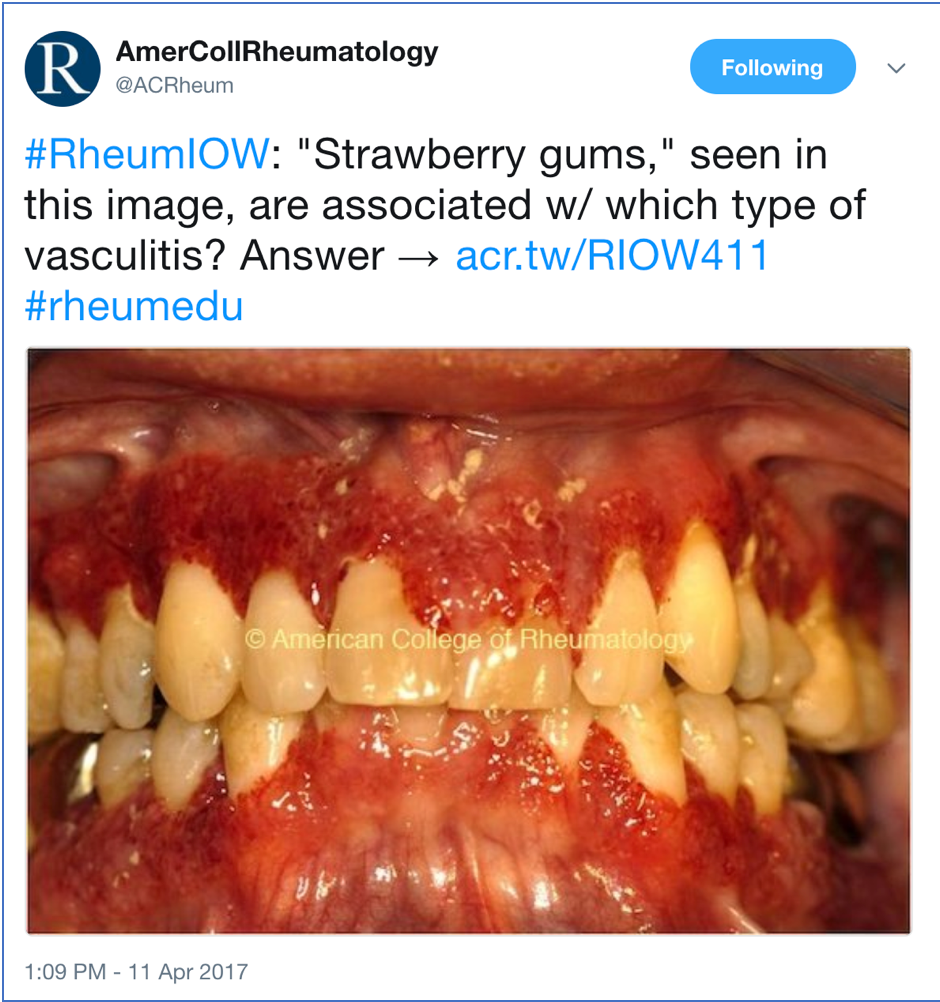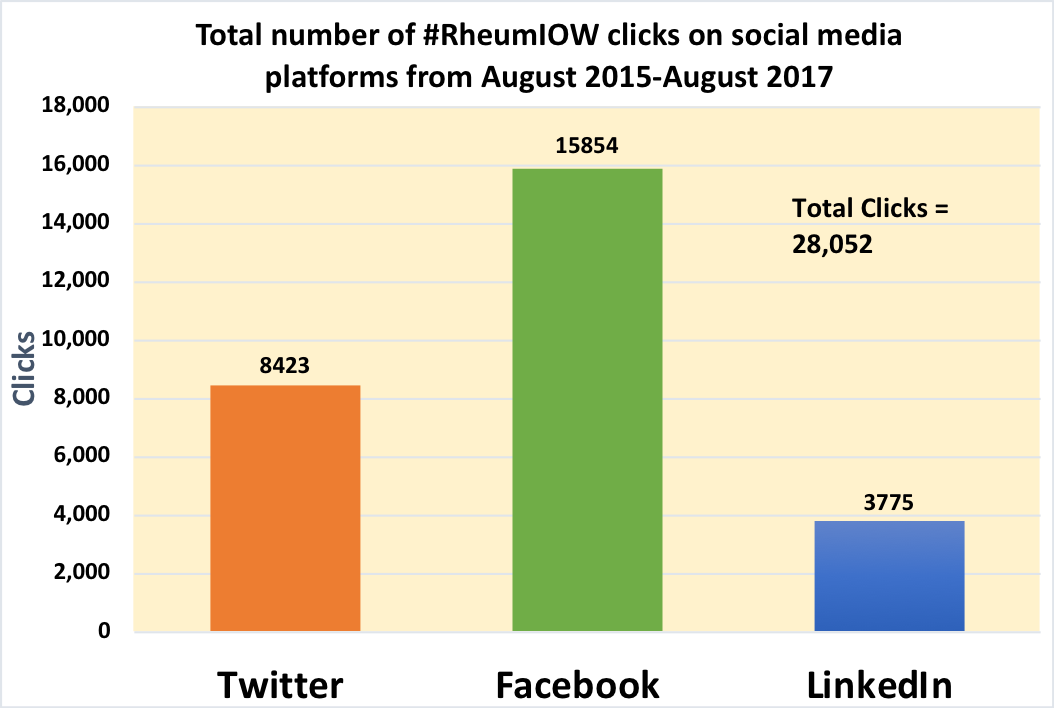Session Information
Date: Sunday, October 21, 2018
Title: Education Poster
Session Type: ACR Poster Session A
Session Time: 9:00AM-11:00AM
Background/Purpose:
With 2 billion global active monthly users of Facebook and 330 million users of Twitter, social media platforms may be used to deliver educational content to today’s adult learner. The Rheumatology Image of the Week project (#RheumIOW) sought to leverage social media to disseminate educational micro-content about rheumatology topics. We recruited rheumatology Fellows-In-Training (FITs) to generate questions based on the ACR Image Library and shared these questions online. We previously showed FITs found question-generation to be a valuable educational experience and useful for learning rheumatology. In the present analysis, we explore the engagement of social media users with #RheumIOW during the two years of the project.
Methods:
FITs created questions related to images from the ACR Image Library. Every Tuesday from August 2015-August 2017, one question, its accompanying image, and a link to the Image Library were shared via ACR accounts on Twitter, Facebook, and LinkedIn (Figure 1). Online engagement was measured using platform analytics.
Results:
As of May 2018, ACR accounts on Twitter, Facebook and LinkedIn accounts had 15,800, 18,900, and 3,600 followers, respectively. Figure 2 shows clicks generated by platform over the two-year project period. There was a trend toward decreasing participation across all platforms over time with a decline of 40% in Facebook clicks, 59% in Twitter clicks, and 22% in LinkedIn clicks between the first and last six months of the project. Nevertheless, #RheumIOW posts had more engagement than most ACR posts during this time.
Conclusion:
The #RheumIOW project sought to leverage social media to deliver educational micro-content on rheumatology topics. Our project was successful in engaging social media users to learn rheumatology and in driving users to ACR’s Image Library. Although ACR has similar numbers of followers on Twitter and Facebook, the latter generated 1.9 times more clicks for #RheumIOW posts. Facebook outperformed Twitter and LinkedIn in stimulating engagement with learners, which may help guide future educational projects. The decline in participation over time indicates that future educational interventions may be most effective when limited in duration. Educational outreach projects on social media may help to increase interest in rheumatology and could be used to recruit Millennials into the field.
Figure 1. #RheumIOW post with question, associated image, and link to ACR Image Library. 
Figure 2. Number of #RheumIOW clicks from August 2015 to August 2017.
To cite this abstract in AMA style:
Gosselin J, Hausmann JS. A Two-Year Educational Initiative to Teach Rheumatology through Social Media: The Rheumatology Image of the Week Project (#RheumIOW) [abstract]. Arthritis Rheumatol. 2018; 70 (suppl 9). https://acrabstracts.org/abstract/a-two-year-educational-initiative-to-teach-rheumatology-through-social-media-the-rheumatology-image-of-the-week-project-rheumiow/. Accessed .« Back to 2018 ACR/ARHP Annual Meeting
ACR Meeting Abstracts - https://acrabstracts.org/abstract/a-two-year-educational-initiative-to-teach-rheumatology-through-social-media-the-rheumatology-image-of-the-week-project-rheumiow/

